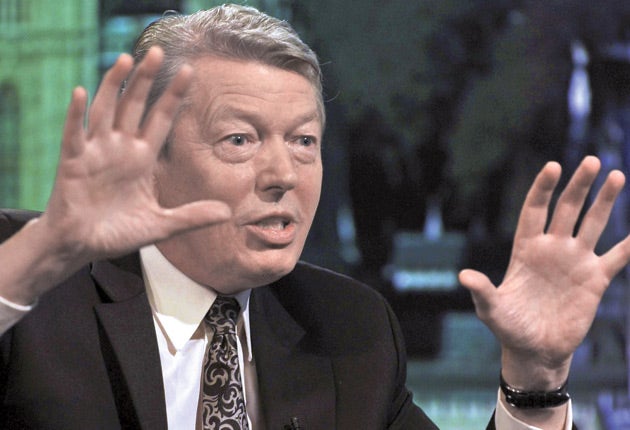Britain 'not covered' for swine flu epidemic
Vaccine for whole country may not be ready until 2010 with early supplies targeted at frontline health staff

Your support helps us to tell the story
From reproductive rights to climate change to Big Tech, The Independent is on the ground when the story is developing. Whether it's investigating the financials of Elon Musk's pro-Trump PAC or producing our latest documentary, 'The A Word', which shines a light on the American women fighting for reproductive rights, we know how important it is to parse out the facts from the messaging.
At such a critical moment in US history, we need reporters on the ground. Your donation allows us to keep sending journalists to speak to both sides of the story.
The Independent is trusted by Americans across the entire political spectrum. And unlike many other quality news outlets, we choose not to lock Americans out of our reporting and analysis with paywalls. We believe quality journalism should be available to everyone, paid for by those who can afford it.
Your support makes all the difference.Britain will not be able to vaccinate the whole population against a potential winter epidemic of swine flu, Alan Johnson, the Health Secretary, admitted yesterday.
Mr Johnson told the Commons it might take up to six months before a vaccine could be available for use but it would be well into 2010 before sufficient quantities could be delivered for the whole country. Negotiations were taking place with manufacturers so the UK could obtain "early supplies" of the treatment when it was ready.
They would be used to vaccinate frontline health staff, who would be vital in any pandemic, and vulnerable groups, such as those with chronic respiratory conditions. But the bulk of the population would be left unprotected.
Mr Johnson said: "We have always known that it may take four to six months before a matching vaccine is available and over a year before it can be manufactured in sufficient quantities for the entire population given that international demand will be high."
Many scientists are predicting the current outbreak of swine flu could die away over the summer before returning, possibly in a more virulent form, in the autumn. It had been hoped that a pandemic vaccine might be ready by then but Mr Johnson dashed those hopes yesterday.
The Government has advance purchase agreements for a pandemic vaccine with manufacturers to secure supplies if the World Health Organisation moves the flu alert from its current phase five to phase six and declares a full-blown pandemic. Pandemics tend to happen in waves separated by several months so a vaccine could potentially be developed against the second or third wave, if they occur.
Mr Johnson said: "We are currently in negotiations with manufacturers to see if we can obtain early supplies at this pre-pandemic phase. We hope that this will enable us to vaccinate frontline health and social care staff and vulnerable groups who prove particularly susceptible to infection before a predicted second wave hits."
But he said it was a "long journey" between identifying the virus and a vaccine becoming available. Scientists at the Health Protection Agency had identified the virus's genetic fingerprint and the National Institute for Biological Standards and Control was developing this into a vaccine strain.
"The best protection we can offer people is vaccination because by giving people some form of immunity to the virus, even at a low level, we will achieve a significant reduction in the severity of any pandemic and in particular the number of deaths or serious complications."
Scientists at Imperial College, London, writing in the journal Science on Monday, said swine flu had "full pandemic potential" and could infect one-third of the world's population, three times more than seasonal flu. They estimated its fatality rate at four in 1,000 cases, four times that of seasonal flu. The virus is constantly mutating which affects its ability to spread and to cause severe illness and death.
Almost half the cases of swine flu so far identified in Britain have been children and there is evidence that children and young adults may be most vulnerable. Older people above the age of 50 may have some immunity as the human part of the virus may have been around in the past. Evidence from Mexico, where the outbreak began, suggests the virus is targeting adults aged 20 to 40.
At least a dozen pharmaceutical companies are preparing to produce a pandemic vaccine, co-ordinated by the World Health Organisation, which is expected to recommend in the next few weeks how it is to be done.
* New York City closed three schools yesterday after a swine flu outbreak that has left an assistant head teacher in a critical condition. Four students and the teacher have tested positive for swine flu at the middle school in Hollis in Queens.
Swine flu: The shape of things to come
* Flu normally dies away in summer, only to return the following winter. Flu is always worse in winter in all countries.
* Damp and humid conditions suit the virus, hot and dry ones do not. The long days of summer mean more ultraviolet light, which kills the virus. In winter, people spend more time huddled together indoors, which makes it easier to transmit the infection.
* The virus is constantly mutating and the worry is that it could change to become more infectious or that it could cause more severe illness when it returns.
* Australia and New Zealand, which are just entering winter, could provide an early warning signal for the impact of swine flu in the northern hemisphere next autumn.
Join our commenting forum
Join thought-provoking conversations, follow other Independent readers and see their replies
Comments